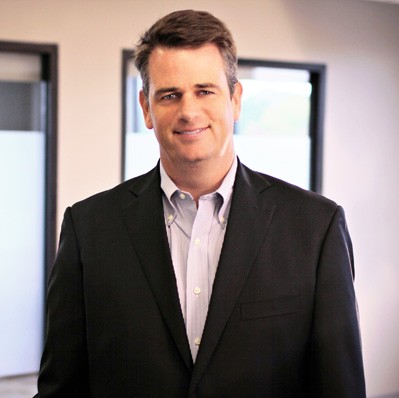Stephen Beard spent nearly a decade as an attorney for executive search firm Heidrick & Struggles, culminating in his role as general counsel. Recently he added the title of chief administrative officer (CAO) and became a member of the company’s management committee. He shares how he balances legal and business responsibilities and his unique perspectives on both.
How did more business-related responsibilities end up being added to your legal role?
Stephen Beard: It was a gradual progression. My first set of nonlegal responsibilities came with overseeing strategy and corporate development, an area of considerable interest given my experience advising clients on mergers and acquisitions with Schiff Hardin, LLP. After coming to Heidrick & Struggles, the complexity of the marketplace kept increasing, so I became more and more involved in conversations about business strategy. As I demonstrated capacity for managing larger teams and complex issues, I was given the opportunity to take on increasing responsibilities. Those now include human resources and marketing in addition to legal and corporate development.
What kinds of challenges did your new administrative responsibilities present? Don’t they require different skill sets than a legal background prepares you for?
Beard: Honestly, I was very comfortable being a subject-matter expert and trusted adviser to leadership on legal and risk issues. But as I moved away from that comfort zone, I had to learn to be a business partner and communicate in commercial terms that everyone immediately understands. I also had to get more accustomed to being part of a team working to achieve business goals. So I approached my new responsibilities with a lot of humility.

On the other hand, did your legal experience provide any skills that are particularly useful in a corporate environment?
Beard: Absolutely. When I’m communicating something important to my team leaders, it’s helpful that, as a lawyer, I’m accustomed to distilling complex information and presenting it in practical ways. I would also say my mediation and counseling skills have been important. They’ve been especially helpful when it comes to breaking down silos and getting different groups to coordinate their efforts toward our overarching business strategy.
As general counsel there must be times when you have to deliver difficult advice. But you’re also CAO and a member of the management committee. How do you wear those hats simultaneously?
Beard: It presents a unique challenge, because to be effective, a general counsel has to be both independent and an integrated member of the senior team. I’ve been with the firm long enough that my colleagues know I am on board and fully aligned with our agenda. But they also know that I have the best interest of the company at heart personally and professionally—and sometimes that means having to deliver advice or guidance that doesn’t necessarily fit with a particular course of action. So where it’s appropriate and necessary, I still have to exercise independent judgment. It’s a delicate balancing act.
Has it been a smooth transition to being a manager with several teams reporting to you?
Beard: Generally, yes. My colleagues in human resources, marketing, and corporate development are true subject-matter experts, so they’ve been tremendous assets. And they have allowed me to focus more sharply on identifying synergies in the support organization and ensuring that each of the departments is aligned around our business strategies.
It helps to have an appetite for leading and coaching people, too. I get a lot of satisfaction out of developing others and seeing them grow to their full potential.
It sounds like you must have had mentors who did the same thing for you.
Beard: I was very fortunate to have had some very dynamic and generous mentors. For example, I clerked for Justice Frank Sullivan, Jr. when he sat on the Indiana Supreme Court. He was an invaluable role model in how he managed and coached the lawyers who worked for him and assessed their abilities. It was very gratifying that he trusted me enough to give me more responsibilities and that I was able to rise to the challenge. I enjoy trying to follow his example with the teams I manage now.
We’ve talked a lot about your experiences and how they influence your approach to your current responsibilities. Is there anything about the responsibilities themselves, or the perspectives that come with them, that has, in turn, changed the way you do your job?
Beard: My involvement in human resources, in particular, has given me much more insight into our business, our culture, and the people who make up the company. We are currently very active in leveraging employee engagement as a means of driving improved performance. The insights I have gained through that work into how our employees perceive their experience at Heidrick and what motivates them have influenced how I view all the areas I manage, including my role as the company’s lawyer.

